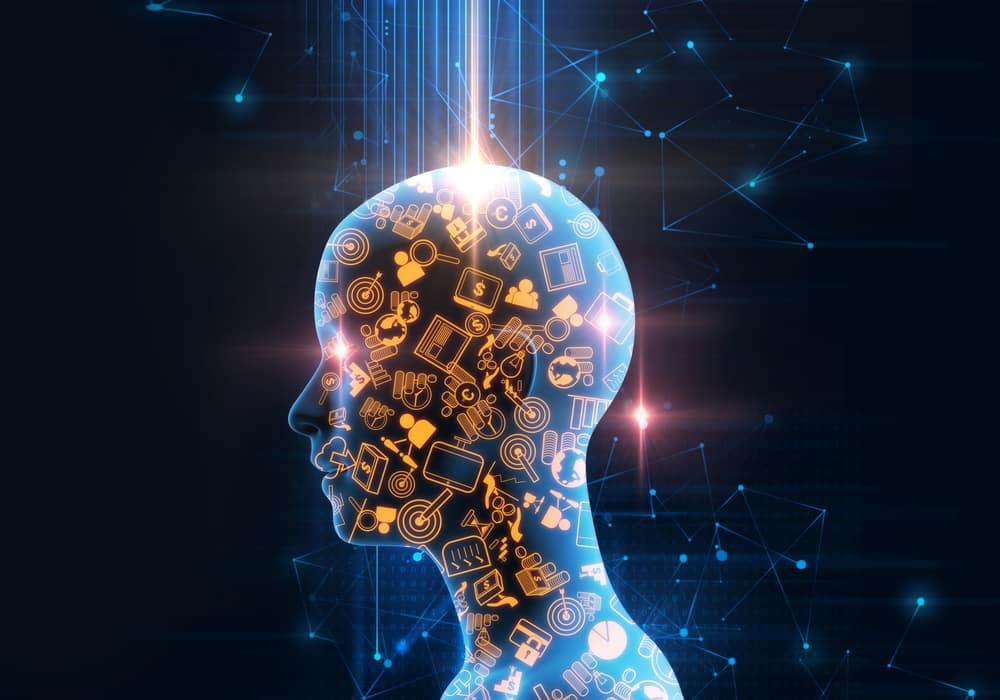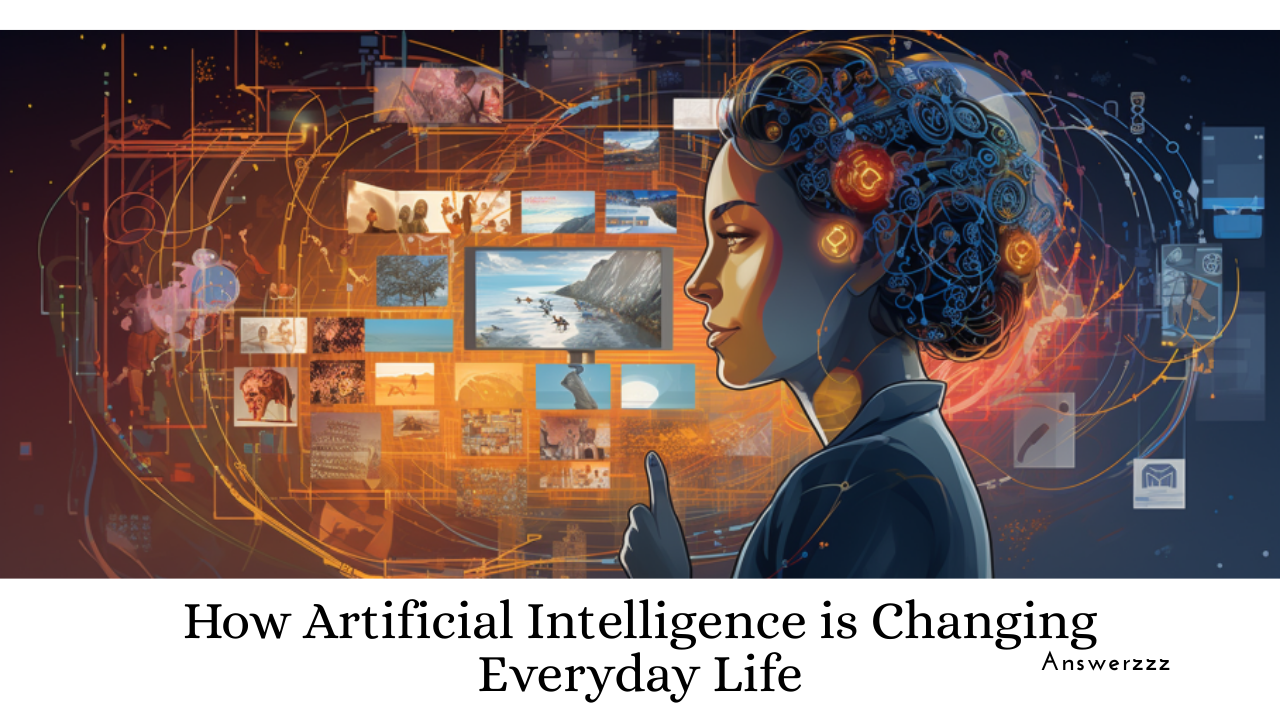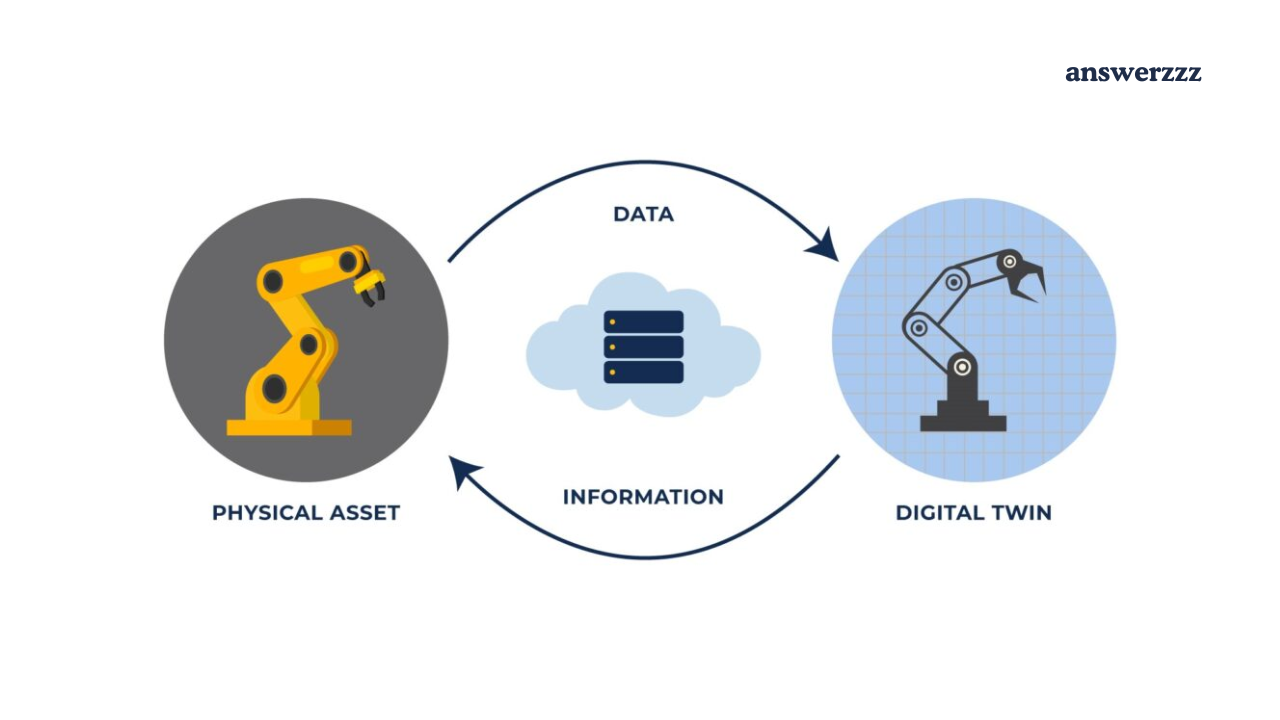In recent years, artificial intelligence (AI) has gone from a futuristic concept to a force that is actively reshaping our daily lives. From the way we communicate and work to our access to healthcare, education, and transportation, AI is everywhere, with transformative impacts expected to intensify over the next decade. This article delves into how AI is changing everyday life now and what changes we can anticipate in the future.

1. AI in Communication: Beyond Smartphones and Smart Assistants
AI has already revolutionized the way we interact with devices and access information, thanks to innovations like smartphones, voice assistants, and personalized algorithms.
- Current Impact: AI-powered voice assistants, like Siri and Alexa, are now commonplace, while AI-driven chatbots provide customer service and instant information in various industries.
- Future Expectations:
- Contextual AI: AI will develop an even deeper understanding of context and tone, enabling more natural interactions.
- Real-Time Translation: As AI language processing becomes more refined, real-time, accurate translations will bridge language barriers, enhancing global communication.
- Emotion Detection: Future AI systems may interpret emotions and facial expressions to better assist with mental health and customer service interactions.
2. AI and Healthcare: The Rise of Personalized Medicine
The healthcare sector is one of the most promising areas where AI is poised to make transformative changes, from diagnostics to patient care.
- Current Impact: AI algorithms are being used to detect diseases earlier than human doctors can, particularly in radiology and pathology.
- Future Expectations:
- Predictive Diagnostics: AI could predict potential health issues based on individual data patterns, enabling proactive healthcare.
- Personalized Treatments: AI-driven insights into genetic information and lifestyle factors will enable highly customized treatment plans.
- Enhanced Medical Imaging: AI will provide more accurate and faster medical imaging analysis, helping healthcare professionals diagnose complex conditions.
- Robotic Surgery: AI-powered robotic systems could become more precise, reducing recovery times and risks.
Top 10 Breakthrough Tech Innovations of 2024 That Are Shaping the Future
3. AI in Transportation: Moving Towards Autonomous Mobility
The impact of AI in transportation has been substantial, with self-driving cars and advanced navigation systems becoming more prevalent.
- Current Impact: AI powers navigation apps, traffic predictions, and ride-sharing services like Uber.
- Future Expectations:
- Autonomous Vehicles: Self-driving cars, buses, and trucks could become more mainstream, reducing traffic accidents and improving fuel efficiency.
- Smart Traffic Management: AI-powered traffic systems will optimize traffic flow, reducing congestion and emissions in cities.
- Urban Air Mobility: Autonomous drones and aerial taxis are on the horizon, potentially transforming urban transportation and logistics.
- Predictive Maintenance for Public Transport: AI algorithms could predict and prevent mechanical failures, ensuring smoother, safer transit.
4. AI and Education: Personalized Learning for Every Student

The education sector has begun to leverage AI for more customized learning experiences and administrative support, with even greater advancements expected.
- Current Impact: AI in education has enabled personalized learning apps, digital tutors, and automated grading systems.
- Future Expectations:
- Hyper-Personalized Learning: AI-driven platforms will customize lesson plans, exercises, and assessments to the individual pace and style of each student.
- Virtual Classrooms: AI could create immersive virtual environments for remote learning, complete with real-time feedback and interactive elements.
- Adaptive Testing and Feedback: AI will help instructors quickly identify students’ strengths and weaknesses, providing timely, customized feedback to help them excel.
- Administrative Automation: AI-powered tools will simplify administrative tasks, allowing educators to focus more on student engagement.
5. AI in Smart Homes: Creating Truly Intelligent Living Spaces
AI has brought a wave of automation to our homes through smart devices, and this trend is set to continue, with the smart home market expanding rapidly.
- Current Impact: AI enables smart thermostats, lighting systems, and security cameras that learn user preferences.
- Future Expectations:
- Fully Integrated Smart Homes: Homes could become more interconnected, with AI systems managing everything from climate control to grocery inventory.
- AI-Powered Security: More advanced facial and voice recognition systems will improve home security, detecting unusual activity and alerting homeowners.
- Health Monitoring in Homes: AI could monitor residents’ health, detecting changes in physical activities or signs of distress, especially beneficial for the elderly.
- Energy Optimization: Smart homes will use AI to track energy consumption, turn off unused devices, and optimise energy use to lower bills and environmental impact.
Unpacking the Potential Influence of Microtransactions on Gaming Communities
6. AI in Shopping and Retail: Personalized Shopping Experiences
The retail sector has embraced AI, using it to create highly personalized shopping experiences, streamline operations, and enhance customer service.
- Current Impact: Recommendation engines and virtual try-on experiences are AI-driven, tailoring product suggestions to individual preferences.
- Future Expectations:
- Virtual Personal Shoppers: AI assistants could help consumers find products based on style, budget, and specific preferences in real time.
- Augmented Reality (AR) Shopping: AI-powered AR experiences could allow customers to virtually try on clothes or visualize furniture in their homes.
- Voice Commerce Expansion: AI will improve voice-activated shopping experiences, allowing consumers to make purchases and compare products hands-free.
- Inventory Optimization: AI could help retailers optimize inventory, predict trends, and manage stock to reduce waste and meet consumer demand.
7. AI in the Workplace: A New Era of Productivity
AI is also transforming the workplace, streamlining tasks, and creating new opportunities for collaboration and productivity.
- Current Impact: AI is used for scheduling, email categorization, and automating routine tasks.
- Future Expectations:
- AI-Driven Project Management: Future AI systems may provide real-time insights into project timelines, resource allocation, and productivity metrics.
- Automated Customer Support: With advanced natural language processing, AI could handle most customer service queries, allowing human employees to focus on more complex tasks.
- Remote Work Optimization: AI could enhance virtual work environments, analyzing productivity trends and suggesting ways to improve remote team dynamics.
- Predictive Analytics for HR: AI will help human resources departments anticipate hiring needs, track employee satisfaction, and promote engagement.
8. AI and Financial Services: Security, Automation, and Beyond
In finance, AI is creating a more efficient, secure, and accessible landscape, with substantial impacts on how individuals and businesses manage finances.
- Current Impact: AI detects fraud, offers customer support, and provides insights for investment portfolios.
- Future Expectations:
- Enhanced Fraud Detection: AI will become even more adept at identifying fraud patterns in real time, protecting consumers and businesses.
- Automated Financial Advice: AI-powered financial advisors will offer tailored financial advice and investment strategies based on an individual’s goals.
- Personalized Banking: AI will help financial institutions provide highly personalized services, including credit, lending options, and interest rates.
- Blockchain and AI Integration: The fusion of AI with blockchain technology could create transparent, tamper-proof financial transactions and records.
9. Ethical Considerations and Challenges of AI Adoption

While the future of AI in daily life appears promising, it also brings ethical challenges and risks that need to be addressed.
- Privacy Concerns: As AI systems collect and analyze more personal data, there are valid concerns regarding data security and privacy.
- Bias and Fairness: AI algorithms can perpetuate existing biases if they are not trained on diverse datasets, leading to unfair outcomes in areas like hiring, credit scoring, and law enforcement.
- Job Displacement: Although AI is likely to create new jobs, it may also lead to job displacement in specific industries, requiring governments and companies to plan for retraining and support.
- Autonomy and Control: There are concerns about how much control AI systems should have, especially in critical areas like healthcare, security, and autonomous vehicles.
The next decade promises to be one of extraordinary advancements in AI, with wide-reaching impacts on nearly every aspect of life. From personalized healthcare and autonomous transportation to intelligent homes and advanced educational tools, AI will continue to shape the world in ways we’re only beginning to understand. However, it is essential to balance these advancements with ethical considerations to ensure that AI technology benefits society as a whole, creating a future where convenience, security, and innovation are available to all.



